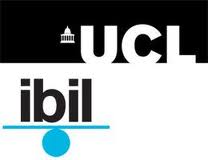 Last week, at the UCL Faculty of Laws in London, IP Draughts (together with around 30 expert speakers) ran the 11th annual outing of a five-day course, IP Transactions: Law and Practice.
Last week, at the UCL Faculty of Laws in London, IP Draughts (together with around 30 expert speakers) ran the 11th annual outing of a five-day course, IP Transactions: Law and Practice.
This year we had 33 students; like them, IP Draughts is still processing information from the course. Here are a few of the points that stood out for him:
- The next generation of speakers. IP Draughts counted 11 new partners, counsel and associates speaking on the course. To pick out a couple, Hayley Gow and Maria McAlister, both senior associates from Ashurst LLP, gave us an interesting talk on Tuesday, on what corporate lawyers want from their IP colleagues in M&A deals. All the new speakers did a great job in terms of lively and informative content. If he were being picky (which he is), a minor quibble is that one or two of the week’s speakers might practise projecting their voices more across a large room.
- A diverse group of students. This year, we had many more students from in-house roles than in previous years, and fewer students from private practice firms (perhaps because IP Draughts had neglected to remind speakers to send their juniors on the course). The students provided interesting insights on what happened in their practices, from a professional mediator to an in-house lawyer at a leading AI firm, as well as several people from universities in the UK and overseas. A part of the course that IP Draughts doesn’t always see is the opportunity for new entrants to the world of transactional IP to network with each other. It helps when the vast majority of students attend in person, rather than online.
- New content. We were instructed and entertained by a new session on Artificial Intelligence, given by Vik Khurana, a partner at Bristows. This session formed part of the day on IT contracts (Thursday), led by the excellent double act of Sam de Silva of CMS and Toby Crick of Bristows.
- Developments in existing law and practice. IP Draughts noted (from John Hull’s Monday talk) that there were recent, reported cases on confidentiality issues where counsel presented alternative arguments based on EU trade secrets law and English case law on confidentiality. He was also interested to hear Edmund Forey’s insights (on Wednesday) on how English competition law might diverge from EU law over time.
- Old faithfuls. The sessions on media law, on Friday morning, are always interesting. Sam Oustayiannis has been helping to run these sessions for several years as part of John Enser’s CMS team, and this time he came back as a new partner at that firm (are these two facts connected?). Each year, it is interesting to hear how the commercial landscape for broadcasting continues to change, from terrestrial TV to new business models for subscription services. Some things remain unchanged. IP Draughts was pleased to hear John’s explanation of why saying “all rights reserved” on your copyright statements is of marginal value.
IP Draughts has left this year’s course with the impression that it is more than the sum of its parts. He and the other speakers can and do provide useful information on law and practice, and they help to facilitate workshops where the information is “contextualised” (to use a piece of jargon that he has heard many times recently). But it is the students who bring the course to life.
A big thank you from IP Draughts to all of this year’s speakers and students.



You must be logged in to post a comment.